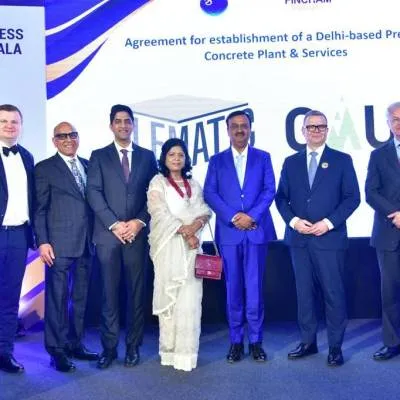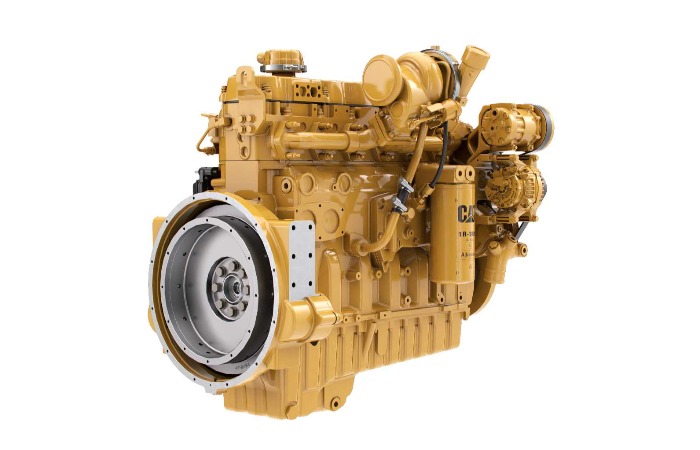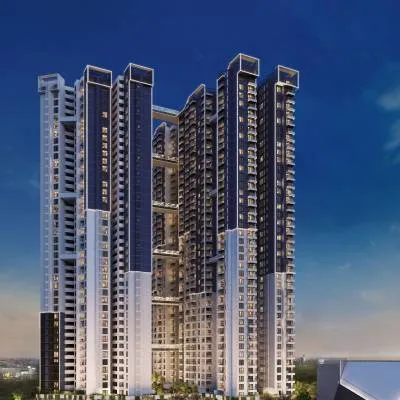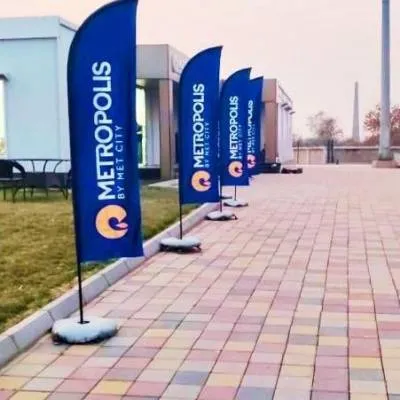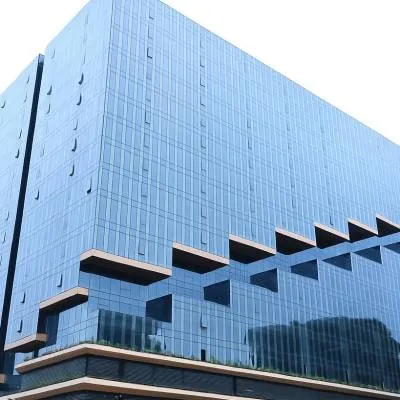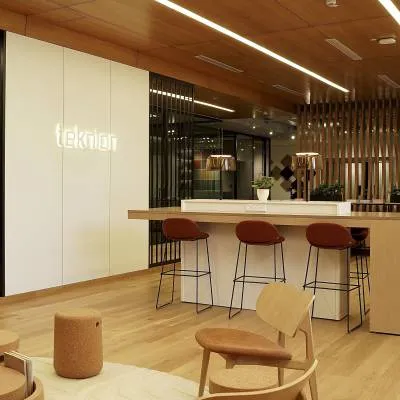Schedule a Call Back
Big Deal!
2019-05-01
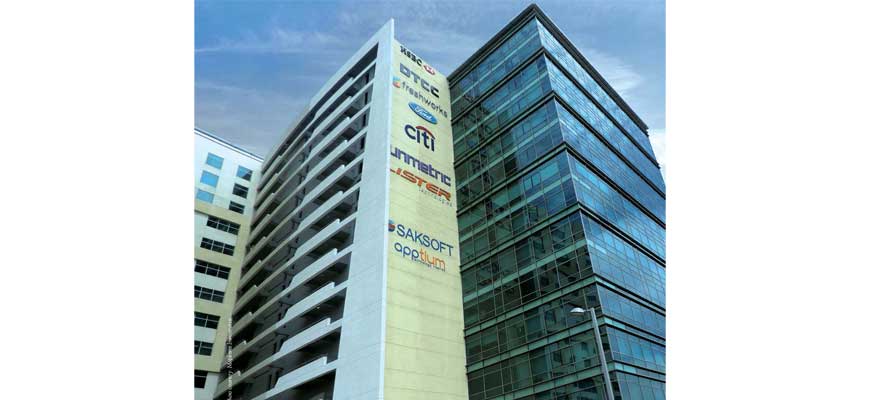
Of private equity investments worth $4 billion in India?s real estate in 2018, the commercial segment has attracted a lion?s share of 70 per cent. CW PROPERTY TODAY explores property deals that have made it to the top list.
India?s real-estate sector attracted investments worth $7.2 billion across 65 transactions in the past year, reveals a Vestian report. Foreign funds led the way, with the commercial segment securing a majority of private equity (PE) investments.
According to a JLL study last December, the total inflow into Indian real estate in 2018 was about $5.5 billion. ?And in the past 15 months, it would be about $6.7 billion,? shares Sonit Singh, COO & Head, Cross Border Capital Markets, JLL India.
?The sector mostly attracted investments into rental yielding assets like office parks, malls, warehouses and co-working spaces,? says
Vijay Agrawal, Advisor, Equirus Capital. He believes that warehousing and co-working spaces will be emerging areas of PE investment.
The scenario
About 50 per cent of investments were in offices, amounting to about $2.8 billion of the $5.5 billion that came in last year. ?These were primarily asset acquisitions or investment in the form of direct equity into the asset class,? says Singh. This was followed by warehousing, some hospitality and retail, and then residential, with momentum remaining strong in Q1.
Personality :- ?Investments in commercial were primarily asset acquisitions or in the form of direct equity into the asset class.?
- Sonit Singh, COO & Head, Cross Border Capital Markets, JLL India
Will affordable housing revive residential investments?
Grappling with multiple issues like stalled or delayed projects, liquidity crunch and high property values coupled with weaker demand and low sales, the residential space has been gradually losing PE investor interest over the years, with equity investments down to 3 per cent in 2018 from 27 per cent. Institutional investors believe residential developers still have to tighten their operations, observes Ashutosh Limaye, Director & Head-Consulting Services, Anarock Property Consultants. ?That?s why, PE has not really come in equity form to the residential segment, although they may consider investing as debt.?
However, this is expected to change with the impetus to the affordable housing sector. HDFC Capital has already raised a
$1-billion dedicated platform for investments in affordable and mid-income residential projects in 15 cities. Prestige Estate Projects and HDFC Capital Advisors have committed $390 million for affordable housing projects.
And Puravankara Developers is also in talks with domestic funds for affordable housing projects.
Further, in February this year, Blackstone announced that PE funds managed by it have entered into an agreement to acquire the entire stake in Aadhar Housing Finance, India?s largest independent affordable housing finance company. Blackstone will simultaneously infuse Rs 8 billion PE capital into Aadhar. The transaction is expected to close later this year.
Personality :- ?Private equity has not really come in equity form to the residential segment.?
- Ashutosh Limaye, Director & Head-Consulting Services, Anarock Property Consultants
Personality :- ?The year 2018 saw the majority of developers preferring an asset light business model, resulting in JVs.?
- Nikhil Bhatia, Managing Director & Co-Head, Capital Markets, CBRE India
While overall sentiments picked up in 2018, investors became
more cautious and process-oriented, pushing some deals to 2019, observes Nikhil Bhatia, Managing Director & Co-Head, Capital Markets, CBRE India. The year also saw the majority of developers preferring an asset light business model, resulting in JVs as they require less capital outflow in the initial stages. ?There is increasing preference for direct control over investments that are primary drivers for investment platform deals, which have seen tremendous growth from ~Rs 17.5 billion in 2012 to
~Rs 140 billion in 2018.?
The change in financing and the built environment has led to the re-emergence of capital solutioning through equity-like trades and project-level partnerships.
?This mainly includes a mezzanine structure of financing, JV, joint development and development management (DM) by Tier-1 developers with landowners and Tier-II and Tier-III developers in key metros and micro markets,? explains Sanjeev Chandiramani, National Director-Capital Markets, Knight Frank (India). ?Debt transaction with an equity upside or reduced preferred returns are the current flavour, as most investors are still risk-averse. Pure-play equity transactions are limited; more structured transactions are preferred.? Further, consolidation has led to the emergence of special situation funds, catering not just to last-mile financing requirements, financing projects with limited cover and cash flows, but projects with negative equity or delays in servicing owing to cost overruns or subdued sales velocity. Such funds, together with asset reconstruction companies, are playing a vital role in reviving key real-estate projects.
The game-changer, though, is the listing of India?s first REIT, ?where Blackstone not only got partial exit with upside on its long-term strategic investments, but we saw anchor investors like Morgan Stanley France, Fidelity, Wells Fargo, etc, on-boarding with a commitment of $2.5 million before listing and oversubscription by the retail segment for the same,? says Chandiramani. For CY2018, the investment is $6.7 billion, both in equity and debt forms of capital; this captures the capital allocation of both investors and developers.
PE making headwinds
Overall, the real-estate sector attracted over $4 billion of PE in 2018, a decline of 9 per cent against 2017, states an Anarock Capital report. The office segment accounted for a massive 70 per cent share of total institutional investments in 2018; retail came in a distant second with 7 per cent; and residential drew the least PE among the three sectors, with less than 7 per cent.
PE funds are focussing on top cities because of their business in real estate, says Ashutosh Limaye, Director & Head-Consulting Services, Anarock Property Consultants. ?In terms of asset class, they prefer income-producing assets, which is largely offices and, to some extent, shopping malls.? (See graph on break-up of investments by asset class.)
Notably, Singapore funds, over two years, comprise a 41 per cent share of total PE inflows into Indian realty at $3.5 billion, as per Anarock. US and Canada-based PE investors come next with $3.8 billion PE funds collectively in the past two years.
Interestingly, the top five deals in 2018 ? all commercial ? alone contributed almost 50 per cent of total investments during the
year. (See infographic on Giant Deals 2018.)
Besides, 2018 witnessed the largest PE exit in Indian real estate when RMZ bought back 45 per cent shares of the holding company
RMZ Infotech from QIA and Baring Private Equity Partners for about $1 billion.
Commercial drawing lion?s share
Commercial real estate drew PE funds of $2.8 billion in 2018 against $2.2 billion in 2017. According to Anarock, high occupancy levels, relatively lower rentals in dollar terms, quality Grade-A assets and high-quality tenants are responsible for commercial drawing the lion?s share of PE investments.
Meanwhile, the launch of India's first REIT, backed by PE giant Blackstone Group and Embassy Property Developments, is a positive move. In fact, despite a decline of
9 per cent in PE inflows in 2018 against the preceding year, 2019 is expected to see an increase in PE funding because of India?s first REIT listing. The bullish sentiment of institutional and retail investors is expected to build confidence among global PE investors, besides laying the path for more REITs to follow.
At least five realty players ? RMZ Group, K Raheja Corp, Brookfield, Panchshil Realty and Godrej Properties ? are reportedly planning to raise $10 billion via REITs over the next two years.
Warehousing traction
Warehousing or industrial assets account for almost 19 per cent of investments, the second highest witnessed in 2018, notes Chandiramani. ?ESR, Logos and Maple are some new entrants.?
Warehousing is a sector where more platform level deals will happen. ?These include two kinds of investments,? explains Limaye.
?At a project level, and to create a platform with a mandate or to develop a particular asset category.?
Warehousing investment offers a double advantage of rental yield and land price appreciation, observes Agrawal. In future, these warehouses can be used for residential or commercial development, providing higher returns. ?Already, Everstone and Embassy have created a platform for warehouse investment with a commitment of over $2 billion. Domestic logistics companies, too, are trying to set up large warehouses with investor partnership.? The sector is expected to witness investment of over $7 billion in three years.?
(Read more on the warehousing sector in CW?s June edition.)
Warehousing is a sunrise sector, avers Singh. ?While it is largely disorganised, there is consolidation happening. When a platform gets created, for instance the Logos or IndoSpace platform, they keep adding assets under it over the years.?
IndoSpace, the largest in the space, has over 11-11.5 million sq ft of operating assets; its total commitment in India is above
$3.2 billion. Its successful fundraising reflects the increasing confidence of PE investors in the segment. In Limaye?s view, we will find more players like IndoSpace ?with development and operational expertise, as well as both opportunistic and sovereign funds, willing or eager to deploy funds in warehousing.?
South India steals the showIndia?s southern region recorded the largest quantum of investment with maximum PE deals: A 47-per cent share of total PE investment in 2018. At the city level, Mumbai continued to be the most preferred destination, with 38 per cent of the total
capital inflow. Hyderabad came in second, attracting over $1.1 billion of PE, contributing more than half the investments received by the south. The growth was largely led by the commercial space, where Phoenix Group received PE funds through multiple deals.
What?s in store?
In just the first three months of 2019, PE real-estate investment came close to $1 billion, with 40-50 per cent in commercial and about 30 per cent in warehousing and logistics. The majority came through a single deal when Brookfield acquired the hotel assets of Leela Ventures for $570 million. ?Hospitality is attracting more interest but the flows are still not as consistent as office; and those are likely to continue even in the balance of 2019,? says Singh. However, Anarock estimates hotel transaction volumes to cross $800 million in 2019, the highest for the Indian hospitality industry.
Investor interest in long-term, real-estate plays with preferred developers continues to be visible with additional platforms of over
$500 million getting created in just two-and-a-half months.
Besides, a recent Bombay High Court interim order has paved the way for what is known as Mumbai?s biggest building deal ? at
Rs 25 billion ? between Blackstone and Radius Developers for a building in Bandra-Kurla Complex. According to sources, Blackstone aims to replicate its office success story in retail ? not just with income-producing assets but involvement at the development stage as well.
Going forward, institutional investors are likely to continue infusing investments in real estate. ?Along with Mumbai, Pune and Chennai, Delhi-NCR and Bengaluru are also likely to be on the radar,? predicts Bhatia. As for financing, Chandiramani says, ?We expect an improving scenario for domestic funds with increased retail, HNI and UHNI investments in fund platforms and improved FPI and FDI in development and financing platforms, resulting in delivery of projects across asset classes and markets. Eventually (Q3 onwards), we expect that rate benefits will be passed to both retail and wholesale credit, resulting in capital efficiencies and improved project returns.? Singh confirms we will see a couple of investments in this quarter as well, to the tune of about $500-600 million.
An unstable election year, but a buoyant one already!
(Turn for list of top property deals.)
Development assets take the share
Investments in development assets as a share of total investments across various real-estate asset classes (excluding residential) have risen to 33 per cent ($960 million) in 2018 (YTD) from 4 per cent ($135 million) in 2017, according to a JLL report.
- Blackstone, along with its JV with Embassy Group, Salarpuria Sattva, Panchshil Realty and K Raheja Corp, owns 78 million sq ft, while Brookfield has built an office space portfolio of 24 million sq ft.
- Ascendas Property Fund Trustee has entered into an agreement with Phoenix Ventures to acquire two upcoming commercial office buildings at Vance Business Hub
- in Hyderabad.
- ASK Group has invested $31 million in ATS Infrastructure?s mixed-use development project in Noida.
- In retail, GIC bought a 50 per cent stake in Viviana Mall, Thane, while Blackstone acquired stake in Forum Group?s Esplanade Mall in Bhubaneswar. Dutch pension fund APG Asset Management and Xander fund have formed a platform to invest $450 million in the retail sector.
- Investor attention in warehousing and logistics has increased manifold. Canada Pension Plan Investment Board and Indospace have formed a JV ? Indospace Core ? with an initial commitment to invest $500 million to acquire and develop modern logistics facilities.


Subscribe Now
Subscribe to our Newsletter & Stay updated
RECENT POSTS
Popular Tags
Folliow us
Related Stories
Teknion Opens Collaboration Hub In Bengaluru
Teknion has opened a dedicated Collaboration Hub in Bengaluru, marking a key step in the company’s global growth ...

